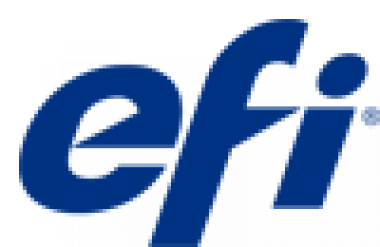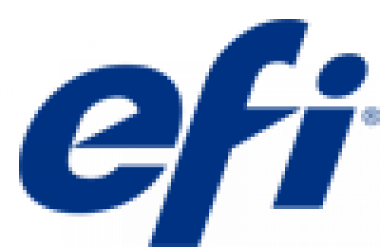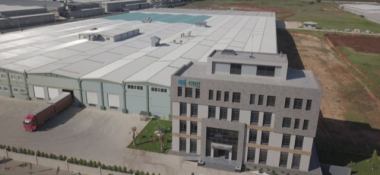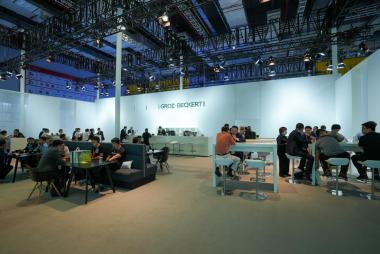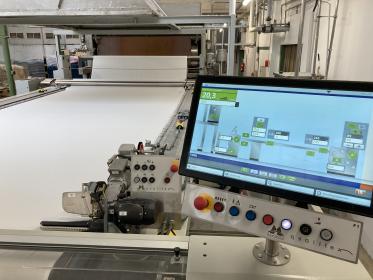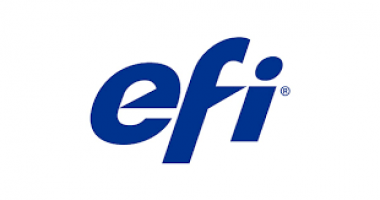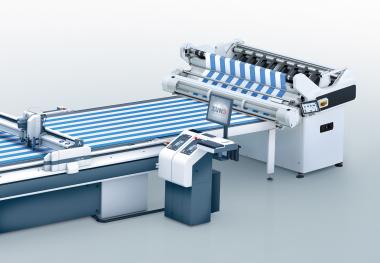EFI: New Innovations in Digital Textile at EFI Reggiani Open House
During an expansive, three-day Electronics For Imaging, Inc. open house this month at the company’s EFI™ Reggiani industrial textile printer facility, textile and apparel manufacturers witnessed first-hand the market-leading innovations that provide users with new opportunities. The December open house, which drew more than 70 attendees from over 23 different European, South American, and Middle Eastern countries, featured informative sessions with product experts on a diverse range of topics, covering new and trending market applications for textile manufacturers.
Attendees witnessed live demonstrations of eight advanced digital printers during the open house, including the new EFI Reggiani HYPER, EFI Reggiani TERRA Silver scanning/multi-pass printer, and EFI Reggiani BLAZE as well as the EFI Reggiani BOLT – the award-winning single-pass offering that is the one of the fastest digital textile printers.
EFI Reggiani HYPER – a fast scanning digital printer
The new EFI Reggiani HYPER is a scanning printer available in 1.8-metre, 2.4-metre or 3.4-metre widths. The Reggiani HYPER model targets the industrial high-speed segment of the multi-pass textile printing sector.
With an up to eight-colour configuration, it prints at speeds up to 13 linear metres per minute in two-pass production mode. The new printer is suitable for high-quality production on knitted or woven fabrics and is designed with smart technology that enables it to be integrated into Industry 4.0 projects.
Sustainable direct-to-textile printing with the EFI Reggiani TERRA Silver
The new-version TERRA Silver printer is part of EFI’s complete TERRA line-up of pigment ink printer solutions. It allows print service providers to enter the world of industrial textile with a short, smart and green production process.
The printer also features:
- A new recirculating ink system for superior reliability and minimum maintenance
- Several printing modes to ensure maximum flexibility in terms of design capability
- New, real-time image processing that eliminates time spent in image pre-calculations
- A user friendly, intuitive interface
- A more-efficient polymerisation process that takes place as printed textile goes through the printer’s on-board dryer.
EFI Reggiani BLAZE, an ideal entry solution for industrial textile printing
The EFI Reggiani BLAZE printer is designed to give textile companies the opportunity to enter the digital textile printing market with a compact solution. The new, 1.8-metre-wide printer offers an innovative, low-maintenance, continuous recirculation ink system equipped with a level sensor and degassing as well as a print head crash protective system for longer printhead life and superior uptime.
The upgraded EFI Reggiani BOLT – one of the fastest digital textile printers
In 2021, the EFI Reggiani BOLT received a combination of hardware and software enhancements that minimise artifacts, compensating for missing nozzles that may occur over time and enhancing uniformity to deliver smoother solid colours. The upgrade also delivers improved quality and smoother gradients, plus it enables faster printhead replacement and drastically increases file processing speed by up to 200% for large, complex files.
EFI GmbH












